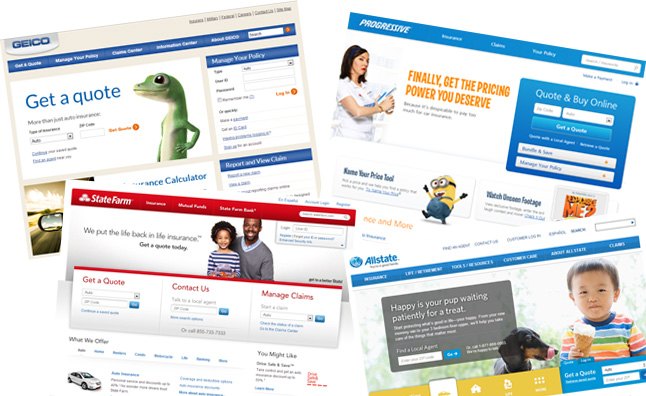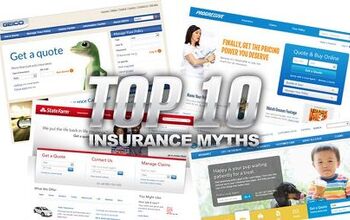You Better Shop Around
Shopping for car insurance is not easy, or fun for that matter! Hunting for the best rates on car insurance is hard enough then there are factors like your age, gender, credit and driving record. And yes, all of these things are determining factors in every auto insurance quote you get.
Unlike in Adam Sandler’s twisted little world, the are no remote controls to rewind real life. If your driving record isn’t the shiniest, you’ll be stuck with it for a while – at least until the blemishes disappear. The reality is that if you own, lease or finance your vehicle, federal laws require everyone who drives a car, truck, SUV, motorcycle and/or boat to have insurance. If you’re not the primary policyholder, at the very least you must be named on one – perhaps with your parents, roommate or even your employer.
Whether you’re a safe, responsible driver or an aggressive freak with tickets galore, you must have auto insurance. Here are 10 great tips to help anyone get the best possible rate for whatever vehicle or situation you’re in. Get several quotes before committing to one. Do this every year before your renewal to ensure you’re getting the best current price available. Help save yourself from unnecessarily paying double or more to one company versus the next.
The National Association of Insurance Carriers is helping consumers find low-priced carriers by state. This handy map can take you directly to your state’s Department of Insurance website to access resources such as consumer buyers guides, local insurance tips, carrier complaint records and more.
A.M. Best Company is another valuable tool for narrowing down your auto insurance search. Sign up for a free account to browse Best’s Rating Center and view detailed insurance scores and company information for insurers and re-insurers in the U.S., Canada, U.K. and worldwide.
Defend your driving record. Traffic, insurance, driving laws and court procedures vary from state to state, but in every one of them it’s essential to get good representation in court for tickets to maintain a clean driving record. Accidents and tickets can stay on your record for several years. The more you accumulate, the more points you will have go on your record and the higher your auto insurance rates will be. Left unchallenged, you could be stuck with higher rates for several years until those blemishes come off your record.
Some insurers have better rates when accidents are three years old versus when the first one is over two years. Shop those rates each year at your renewal until your good rates return. Do your vehicle homework. Before selling your soul (and wallet) on those new Porsche 911 Turbo payments you’ve always wanted to have, it’s absolutely essential to figure out how much insurance will cost you. The year, make and model of vehicle can send up red flags to alert insurance underwriters of potentially higher risk factors such as engine size, number of doors and even its color, for example. If you have some nicks on your driving record, you might want to settle on that old Buick and forget the Porsche for now so you can still afford it when your rates return to normal.
It’s not uncommon to have vast discrepancies when comparing rate quotes for similar-equipped vehicles. Try to be open-minded when buying a new or used vehicle. Make a short list of only a few models you would consider owning to obtain quotes for comparisons. With a bit of flexibility, your bank account will suffer less whenever your premium is due.
Insure everything under one roof. It won’t affect your license points, but many insurers offer policyholders incentives for having multiple policies with them. Depending on the type and number of insurance products purchased, these “multi-line” savings can add up to a significant savings in insurance premiums over time. The more products you insure under one roof (i.e. home, contents or life insurance), the greater the percentage your discount could be. In a few years, you could be eligible for more loyalty discounts.
Ask about all available discounts. Many insurance companies offer various discounts as incentives to policyholders. Asking about any available discounts you might be eligible for is generally a good practice. Some common ones include low annual mileage discounts for occasional drivers or carpoolers, group insurance rates for members of certain organizations, professions and even college alumni. Your carrier can supply you with a list of these groups to see if you qualify for any.
Your vehicle’s safety features can also qualify you for additional rate discounts. Things like AAA or other roadside assistance coverage, OnStar, car alarms, engine kill and other anti-theft devices from LoJack to Boomerang tracking can help lower your risk category. Senior citizens and good-standing students are often eligible for special discounts.
Increase your deductibles. Most auto insurers will offer lower rates if you’re willing to increase your deductible. The Consumer Federation of America’s director of insurance J. Robert Hunter says, “If you go from a $250 to a $1,000 deductible, you can save between 25 and 40 percent on your policy.” The money saved can go into the bank to fund future claims if necessary. It could also go toward your new 911 Turbo payments.
You are responsible for paying the deductible amount whenever making a claim with your insurance company.
Skip collision and/or comp on late models: Don’t pay more for your insurance than your car is worth. A quick way to find out if you’re paying too much is to add up the value of your comprehensive and collision premiums and multiply by 10. If the total is less than the book value of your older vehicle, don’t buy the coverage. The average policyholder makes one insurance claim every 11 years, and reports a total loss only once every 50 years.
Find out your new or used vehicle’s book value on the Kelley Blue Book website.
Credit scores count. Your credit score, good or bad, greatly impacts your auto insurance premium. And, more and more insurers are looking at yours when quoting rates. You could end up paying twice as much for insurance with a bad credit score, so it’s duly important to pays your bills on time. Protect your credit score from identity and credit fraud by monitoring your accounts closely.
Avoid gaps in coverage. Many insurers use lapses in coverage to levy your rates higher. Some will even cancel your discounts if this happens. The best way to prevent gaps in coverage is to always pay your insurance premium on time; and, if you’re switching carriers, don’t leave your previous carrier until the new coverage starts.
Pay for premiums in lump sums. Policyholders are often charged expensive administration fees when paying their insurance premiums in installments. By paying your full premium up front in a lump sum, these administrative fees shouldn’t apply.
More by Shaun Keenan
































Comments
Join the conversation
Hi Shaun, Thanks for fruitful shopping around tips here. I support the car insurance quotes comparison online for grabbing the best deals but still people believe in local broker who doesn't have the idea about new insurers in the market.
which insurance companies accept proof of insurance NCB accrued abroad - in this case in Germany.?